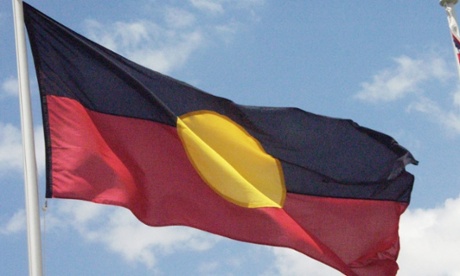Elders and outreach workers say disconnection with culture is compounding intergenerational trauma

Amid a rising epidemic of Indigenous suicide, elders and grassroots organisations are calling for prevention strategies to include Indigenous people and groups, and to focus on reconnecting people with their country and culture.
Indigenous elders and outreach workers from the Culture is Life campaign will this week visit Sydney to raise awareness of a report which interviewed Aboriginal and Torres Strait Islander elders about the crisis of suicide in their communities.
It comes amid reports of suicides among children as young as 11 in remote Indigenous communities.
“We have seen a problem that was close to nonexistent a generation ago explode into an epidemic that is devastating families and communities right across the top end of Australia,” wrote Aboriginal and Torres Strait Islander social justice commissioner, Mick Gooda, in the report.
It detailed alarming statistics, including that in some remote areas of the Kimberley the rate of suicide among Indigenous Australians is 100 times greater than the national average.
Recent reports have put the figure at 70 deaths per 100,000 people – the highest rate in the world when compared to World Health Organisation figures.
In 2012 the suicide rate for people aged 15-24 in the Northern Territory was 50.9 deaths in every 100,000 people.
The Elders’ Report into preventing Indigenous self-harm and youth suicide heard from a number of elders – perspectives it said had been lost among those of “professionals, bureaucrats and other people in positions of power”.
One of those interviewed, David Cole, told Guardian Australia cultural reconnection is a missing factor in current suicide prevention programs, and it must be delivered by Indigenous people so at-risk children have someone to relate to.
“Unfortunately mainstream and most NGOs out there aren’t staffed with Indigenous people to work with Indigenous people and programs aren’t culturally or community developed,” said Cole, who is chair of Darwin’s Balunu Foundation.
“A lot of services imposed on Indigenous people come from a western viewpoint. That’s where the failure happens.”
The Balunu foundation runs a camp for young Indigenous people who have been identified as being at risk of suicide, and helps them through healing workshops and activities, counselling and mentor programs. It take referrals from across the Northern Territory, mostly through communities but some through government welfare departments, NT corrections and police. Some children are sent over from other states.
“The primary focus is cultural reconnection. It’s about building self-identity, and with that as the foundation we move to self-worth, self-belief, getting the kids to understand who they are and be able to walk in two worlds,” said Cole.
The disconnection with Indigenous culture while trying to straddle two worlds is compounding existing intergenerational trauma, said Cole, and attempts by governments to address youth suicide, drug abuse and mental illness have failed.
“Without an understanding of that trauma, of that pain, it’s really hard for kids to be able to let go of it or be able to map a pathway down a positive direction,” he said.
“This country has an attitude of ‘forget about it, forget about the past’,” he said.
“I’m a big believer in the fact that the past got us to where we are today, but it’s what we do today that will determine our tomorrow. And what we are doing today is failing.”
Cole said Balunu has had proven success despite being under-resourced and that of the estimated 700 children that have come through Balunu, 80 to 85% had either attempted or considered suicide but none have succeeded since.
Balunu’s future funding from the NT government was cut at the end of 2012 but Cole said no reason has been given.
“It’s very frustrating for the simple fact that it does work and we are having a big impact on kids.”
Guardian Australia understands the organisation has not approached the NT Department of Health for funding.
Priscilla Collins, CEO of the North Australian Aboriginal Justice Agency (NAAJA), said the funding cuts to Balunu, which she described as the only suicide prevention organisation working from the point of reconnecting culture, were “extremely disappointing”.
“We referred a lot of our youth who are managed by our youth team. And there were always really good outcomes. Most that were referred over there, very few of them actually came back through the court system,” she said.
Collins said she lobbied the NT government to tell them “how important [Balunu’s] work is”, but the cuts continued.
“To this day I have no idea why … when there is evidence to show it is working.”
Building the participation of Aboriginal and Torres Strait Islander peoples in the suicide prevention workforce is a key goal for the federal government’s national strategy. The NT government earlier this year released its draft 2014-16 suicide prevention action plan. One-third of the actions recommended relate specifically to Aboriginal and Torres Strait Islander individuals and communities, and it identifies “disconnection from culture” as a factor in increasing risks of suicide.
Among its actions and outcomes were the expansion of “support and training for Aboriginal health and mental health workers in larger communities to provide services and counselling to their communities”, the establishment and maintaining of “programs utilising a return to country and fostering relationships between elders and youth to encourage connection and cultural knowledge” and a potential Indigenous counselling phone line.
The NT Department of Health has been contacted for comment.
• For information and support in Australia, call Lifeline on 13 11 14, Mensline on 1300 789 978 or Beyond Blue on 1300 22 4636.
